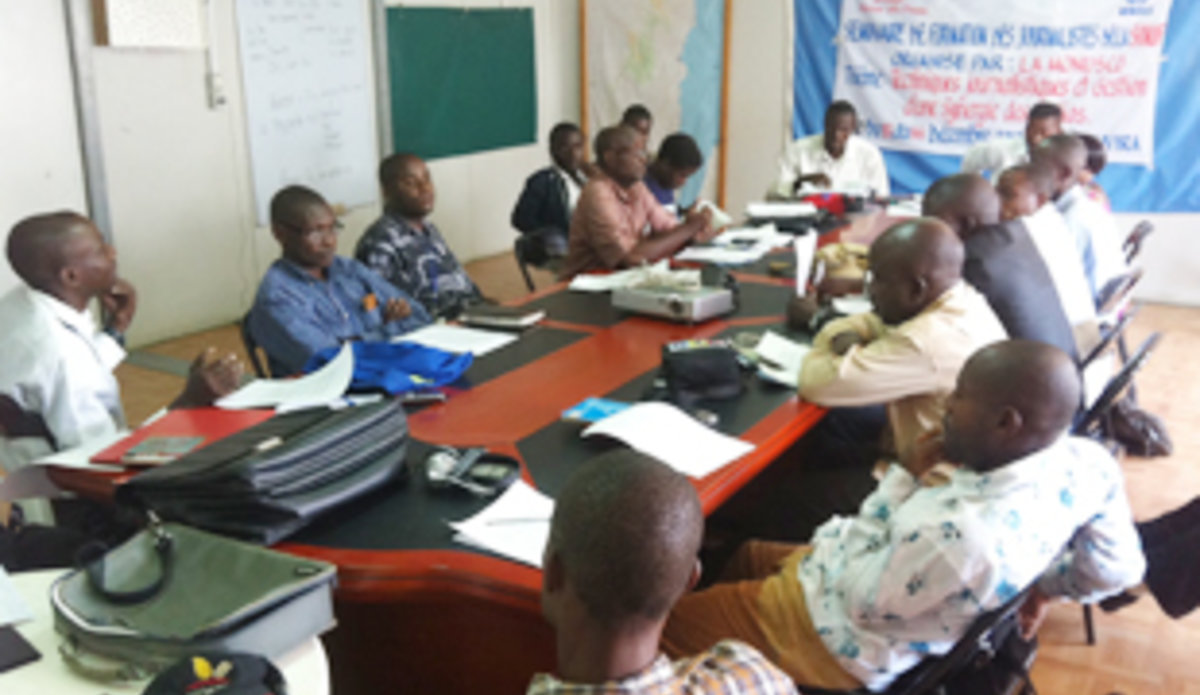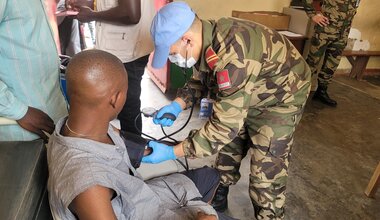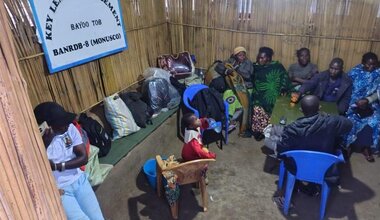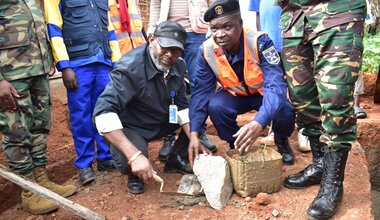MONUSCO encourages local journalists in Uvira and Fizi (Sud Kivu) to work in synergy

Uvira, 25 January 2013 - The United Nations Organization Stabilization Mission in the Democratic Republic of the Congo (MONUSCO) organized a two-day training workshop for journalists from Uvira and Fizi territories, Sud Kivu province, designed to build their professional capacities, increase their knowledge in basic journalistic techniques as well as the ability of local media to work in synergy. The workshop was attended by 70 journalists, 80 percent of whom never received formal training.
The journalists were, as a first step, given the opportunity to review the basic techniques of information collection, analysis and dissemination. They, then, went on to discuss the ethical principles governing their professional responsibilities, as laid down in the national code of ethics for journalists and media professionals.
Finally, Alice Hakizimana, a journalist with the Paris Panos Institute's "Onde des Grands Lacs" project, made a presentation to discuss the advantages for the media to work in synergy, drawing from the Burundian experience.
It emerged from the discussions that synergy work would be a real asset for the local media in Uvira and Fizi territories, particularly in those areas lacking access to information due to their remoteness in the province of Sud Kivu. By working in synergy the local and regional media will be able to create common spaces of collaboration so as to better inform the population on what is happening around.
By organizing this training, MONUSCO sought also to promote better public understanding of its mandate and the activities of local actors and those of the United Nations as a unified system in these two crisis-prone territories. "This training will enable Burundi and the D.R. Congo to reinforce information sharing in this border area where the various information and communication media are readily accessible in both countries"
Laurent Sam Oussou/ MONUSCO
 UN
UN United Nations Peacekeeping
United Nations Peacekeeping






